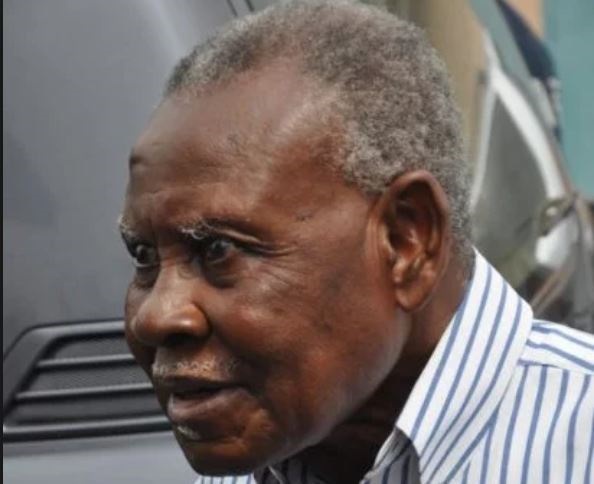 The Minority Leader in Parliament Mr. Joseph Henry Mensah has slammed the statement by the Office of the President on behalf of the National Security Council's (NSC) on the running debate over use of the thump-printed votes alongside the photo ID cards and has described it as a "constitutional coup d'etat."
The Minority Leader in Parliament Mr. Joseph Henry Mensah has slammed the statement by the Office of the President on behalf of the National Security Council's (NSC) on the running debate over use of the thump-printed votes alongside the photo ID cards and has described it as a "constitutional coup d'etat."
The rule of law and civil liberty, ends the moment the Armed Forces of the nation and not the Electoral Commission are used to dictate the rules of the electoral process.
Reacting to the National Security Council statement with a statement of his own over the weekend Mensah also Member of Parliament for Sunyani East, stressed that the Electoral Commission under Article 46 of the constitution could not be controlled by any other authority. "The rules for Election 2000 have been set by and through inter-party consultations, and embodied in Electoral Commission regulations. Under those rules thumb print identity cards are no longer legal tender for elections in Ghana. No other authority has legal power to vary that rule: they can only do so by coup d'etat. For the President to convene a meeting of serving officers and encourage them to take any decisions whatsoever on electoral regulations concerning voter identification amounts to leading another coup against the constitution of Ghana.
The Ghana Armed Forces and the National Security Council have no constitutional role in setting the rules and the regulations for elections in Ghana. Advice they can naturally proffer based on their specialised knowledge as indeed can every citizen under our democratic dispensation," he underlined. Mensah's reaction has come less than a day after the statement of the National Security Council, which was carried by the Daily Graphic on Saturday. The statement according to the publication among others expressed the Council's worry over the status of the thumb printed ID cards in the December 7 general elections and warned that it could create security problems for the security agencies.
He warned the Army High Command to learn from the Ivory Coast experience advising them not to allow itself to be drawn "into this utterly false constitutional position of the NDC regime."
"Our service commanders and the IGP should seriously advise themselves whether such a partisan objective can be legally, morally and responsibly pursued with the support of their professional positions as soldiers, naval and air officers and police commanders," he stated. The issuing of a public and coercive document such as has emanated from the Office of the President with the collective armed might of Ghana's security service behind it, he contended, is clearly a breach of the 1992 constitution.
"Elections are a civil and democratic process: the intrusion in this way of brute-armed force is improper and unlawful," he stressed. He described the statement together with President Rawlings' recent ultimatum to the Inspector General of Police (IGP) to present an action plan on how to curb political violence as representing a continuum of illegal actions perpetrated by the President.
"Before this latest episode President Rawlings has also tried to coerce the political process of Election 2000 by determining for himself that his opponents are responsible for threatening political instability and ordering the IGP in effect to suppress them under the Public Order Act contrary to the spirit of the Constitution Article 55 (3)," he underscored.
General News of Tuesday, 28 November 2000
Source: Ghanaian Chronicle
Presidency Can't Dictate Conduct of Polls













